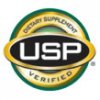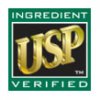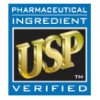The following has been compiled by member Markarich159, a registered US Pharmacist:
VG/PG USP by Markarich159 Pharmacist:
As of this posting, there are no FDA approved, short or long term studies, that I am aware of, that deal with the safety of inhalation of PG or Glycerin at the concentrations associated with vaping and/or the use of e-cig products. This post is intended as a common sense guide for vapers in selecting appropriate brands of PG/Glycerin from what is available in the US marketplace. No guarantee of clinical safety is implied in this post. It is incumbent upon all of us as conscientious vapers(over the age of 18) to decide what is appropriate to place into our bodies.
Up to now there have been more threads on this forum dealing with what type of Glycerin/PG to purchase then I can shake a stick at. Although lengthy, this post will try to be as definitive as possible in describing the BEST , SAFEST type of Glycerin/PG to purchase and why. Also, this post only deals with individual consumer purchasing. If you are buying wholesale or “in bulk” as a manufacturer, it is up to you or your company to ensure and certify that what you are receiving is pharmaceutical grade product from an FDA registered and licensed supplier, specifically approved by the FDA to manufacture and sell pharmaceutical(USP grade) product.
In a nutshell, USP grade is the only type of Glycerin/PG I would ever recommend.
What is the USP?
The USP stands for United States Pharmacopeia. The USP is the official pharmaceutical compendium in the United States. It includes chemical descriptions, identifying tests, and purity tests, primarily for active ingredients. All materials listed in the USP are considered drugs by law and subject to all the U.S. Food & Drug administration requirements pertaining to drugs.
USP grade is pharmaceutical grade(the same grade a drug company or pharmacist manufacturing or compounding a formulation for human use would be required to utilize) is the only grade that has any FDA regulation and oversight associated with it’s manufacture, labeling and marketing.
When you buy USP grade you are assured of 3 things:
Labeling:
In the US, for any product to be considered USP Certified, it must adhere strictly to the labeling standards set out by the Food and Drug Administration .
If a product does not follow this labeling protocol, it cannot be considered to be USP grade. The actual name of the product(on the front of the bottle) must be in this format:
or
So, for example, if a bottle of glycerin is pure by USP standards it must read:
or
Additionally, the label must be exactly the same as its USP monograph (i.e. it's entry in the database of compounds kept by the USP)
The same holds true for PG. In order for PG to meet USP standards, it must read on the front of the bottle(the actual name of the product):
...or the variation as above.
Other items that should also be included on a proper USP standard drug listed for OTC sale are:
• Drug Facts (HEADING)
• Active Ingredient - Purpose
• Uses
• Warnings
• Directions
• Other Information
• Inactive Ingredients (if any)
• Contact Information
• Lot # and a REAL, Actual Expiration Date (not just x number of years from purchase).
What about the FCC grade?
FCC stands for Food Chemicals Codex. It is an ancillary international food grade compendium which was purchased by the USP from the Institute of Medicine in 2006. While the FCC is OWNED by USP it is not equivalent; the standards differ but more importantly the legalities are completely different.
While the FCC is broadly recognized in law in countries like Australia, Brazil, Canada & New Zealand, the FCC currently does not have any legal recognition in the United States. Therefore, anything labeled FCC grade is done so voluntarily by the manufacturer with no regulatory oversight by the FDA* (other then being referred to as GRAS-Generally recognized as safe-for food use).
What about all those Vegetable Glycerin products you find in health food stores?
..You know, the one’s labeled 100% Pure USP Vegetable Glycerin, Kosher Vegetable Glycerin 100%, Vegetable Kosher USP Glycerin 100% etc…
Kosher(Kashrut) Law:
Kashrut(kosher) laws are Jewish religious dietary laws having to do with the preparation of food products and really have nothing to do with the labeled purity of the product. Also, Kashrut(kosher) laws are jurisdictional(handled differently in different places). In some cases a rabbi must come to the manufacturer and verify processes and equipment conform to kosher law and in some places it's enough that the manufacturer says or thinks he is conforming to the kosher laws. In any case USP and Kosher are 2 different things. There is no such listing in the USP for "Kosher Glycerin"
There is also no “Vegetable Glycerin” monograph in the USP....
What then allows these manufacturers to label and market their glycerin products so seemingly deceptively?
The answer is that all these products fall under the “health food” or “natural product” category which is governed by Dietary Supplement Health and Education Act of 1994.
The Dietary Supplement Health and Education Act of 1994 gives almost carte blanch license to Dietary supplement/Herbal/Vitamin/Health Food/Natural Product manufacturers to manufacture, label and market their product as they see fit(no true oversight or approval by the FDA). Granted, there are provisions in the Act to "protect" the public, but they are, again, all voluntary to the manufacturer. It would be like Congress saying "Ok, we're modifying the regulations that apply to marijuana. It's technically still illegal, BUT, we're no longer authorizing any Federal, State or Local Law enforcement agency to enforce this or arrest anybody caught using it. It's up to the citizens to do the right thing and take it upon themselves not to use marijuana" It's not exactly the same, but it's a close analogy to give you some idea the latitude that these manufacturers have.
It was initially put in place so as to not annihilate the burgeoning dietary supplement/ health food/ natural products industry in the USA in early to mid 90's (otherwise all these products would have had to get FULL FDA approval prior to marketing like any other drug). However, it's kind of backfired as Congress has, since, had to pass the Dietary Supplement and Nonprescription Drug Consumer Protection Act of 2006, since many of these unapproved products have caused problems. However, this newer act doesn't really address any of the weaknesses in the former Act except to require mandatory Adverse Reaction reporting on any OTC or dietary supplement product.
Although there are SOME dietary supplement products that have been “USP verified” (which is NOT the same as a USP grade pharmaceutical product), they are few and far between and CLEARLY affixed with one of these labels:
For more information on what “USP verified” means, visit here: USP Verified
You’ll also sometimes see the wording “technical grade”. Technical Grade anything is not subject to FDA regulatory control. Although, possibly, produced to somewhat similar specifications, Technical Grade does not need to comply with USP requirements or FDA regulations. This grade only needs to conform to the specifications mutually agreed upon by the buyer and seller.
What if I WANT my Glycerin, USP to BE Vegetable source (for allergenicity/religious/ethical reasons)?
There is no Vegetable Glycerin monograph in the USP because the USP considers it’s purity standards for Glycerin to be adequate for human use(regardless of source). However, some people insist on utilizing Vegetable source products for allergenicity(pig or porcine allergy), religious(Orthodox Jewish & Muslims) or ethical reasons.
Although I cannot speak for EVERY manufacturer of Glycerin, USP that exists, I did personally speak to the Quality Assurance person at Humco, Inc. Humco contract packages (meaning, places their manufactured product into other company's labeled bottles) for almost every major pharmacy label in the country. From their company information they contract package for the following:
Among our wholesale customers are McKesson Healthcare Solutions, Cardinal Health and AmerisourceBergen(which is the Family Phamacy and Good Neighbor Pharmacy labels) along with most regional wholesalers. In addition, Humco supplies products to Walgreens, CVS, Rite Aid and Wal-Mart.
So any Glycerin, USP labeled in any of the above mentioned Pharmacy labels (Humco, Family Pharmacy, Good Neighbor Pharmacy, CVS, Rite Aid, Walgreen's and Walmart labels) IS USP grade AND Vegetable sourced.
Brands of Glycerin, USP not included in the above list would have to be verified as solely vegetable source by direct contact with the manufacturer/packager/distributor listed on the label.
VG/PG USP by Markarich159 Pharmacist:
As of this posting, there are no FDA approved, short or long term studies, that I am aware of, that deal with the safety of inhalation of PG or Glycerin at the concentrations associated with vaping and/or the use of e-cig products. This post is intended as a common sense guide for vapers in selecting appropriate brands of PG/Glycerin from what is available in the US marketplace. No guarantee of clinical safety is implied in this post. It is incumbent upon all of us as conscientious vapers(over the age of 18) to decide what is appropriate to place into our bodies.
Up to now there have been more threads on this forum dealing with what type of Glycerin/PG to purchase then I can shake a stick at. Although lengthy, this post will try to be as definitive as possible in describing the BEST , SAFEST type of Glycerin/PG to purchase and why. Also, this post only deals with individual consumer purchasing. If you are buying wholesale or “in bulk” as a manufacturer, it is up to you or your company to ensure and certify that what you are receiving is pharmaceutical grade product from an FDA registered and licensed supplier, specifically approved by the FDA to manufacture and sell pharmaceutical(USP grade) product.
In a nutshell, USP grade is the only type of Glycerin/PG I would ever recommend.
What is the USP?
The USP stands for United States Pharmacopeia. The USP is the official pharmaceutical compendium in the United States. It includes chemical descriptions, identifying tests, and purity tests, primarily for active ingredients. All materials listed in the USP are considered drugs by law and subject to all the U.S. Food & Drug administration requirements pertaining to drugs.
USP grade is pharmaceutical grade(the same grade a drug company or pharmacist manufacturing or compounding a formulation for human use would be required to utilize) is the only grade that has any FDA regulation and oversight associated with it’s manufacture, labeling and marketing.
When you buy USP grade you are assured of 3 things:
- The product was made to the exact specifications listed in it’s USP monograph
- The manufacturer is FDA registered and licensed and the product HAS been approved(including the labeling/marketing material) by the FDA as meeting USP specifications.
- The product was made in a FDA certified facility using cGMP(current good manufacturing practices) which are stringent to ensure lot to lot consistency.
Labeling:
In the US, for any product to be considered USP Certified, it must adhere strictly to the labeling standards set out by the Food and Drug Administration .
If a product does not follow this labeling protocol, it cannot be considered to be USP grade. The actual name of the product(on the front of the bottle) must be in this format:
{Name of product , USP}
or
{name of product}
USP
So, for example, if a bottle of glycerin is pure by USP standards it must read:
Glycerin, USP
or
Glycerin
USP
Additionally, the label must be exactly the same as its USP monograph (i.e. it's entry in the database of compounds kept by the USP)
The same holds true for PG. In order for PG to meet USP standards, it must read on the front of the bottle(the actual name of the product):
Propylene Glycol, USP
...or the variation as above.
Other items that should also be included on a proper USP standard drug listed for OTC sale are:
• Drug Facts (HEADING)
• Active Ingredient - Purpose
• Uses
• Warnings
• Directions
• Other Information
• Inactive Ingredients (if any)
• Contact Information
• Lot # and a REAL, Actual Expiration Date (not just x number of years from purchase).
What about the FCC grade?
FCC stands for Food Chemicals Codex. It is an ancillary international food grade compendium which was purchased by the USP from the Institute of Medicine in 2006. While the FCC is OWNED by USP it is not equivalent; the standards differ but more importantly the legalities are completely different.
While the FCC is broadly recognized in law in countries like Australia, Brazil, Canada & New Zealand, the FCC currently does not have any legal recognition in the United States. Therefore, anything labeled FCC grade is done so voluntarily by the manufacturer with no regulatory oversight by the FDA* (other then being referred to as GRAS-Generally recognized as safe-for food use).
What about all those Vegetable Glycerin products you find in health food stores?
..You know, the one’s labeled 100% Pure USP Vegetable Glycerin, Kosher Vegetable Glycerin 100%, Vegetable Kosher USP Glycerin 100% etc…
Kosher(Kashrut) Law:
Kashrut(kosher) laws are Jewish religious dietary laws having to do with the preparation of food products and really have nothing to do with the labeled purity of the product. Also, Kashrut(kosher) laws are jurisdictional(handled differently in different places). In some cases a rabbi must come to the manufacturer and verify processes and equipment conform to kosher law and in some places it's enough that the manufacturer says or thinks he is conforming to the kosher laws. In any case USP and Kosher are 2 different things. There is no such listing in the USP for "Kosher Glycerin"
There is also no “Vegetable Glycerin” monograph in the USP....
What then allows these manufacturers to label and market their glycerin products so seemingly deceptively?
The answer is that all these products fall under the “health food” or “natural product” category which is governed by Dietary Supplement Health and Education Act of 1994.
The Dietary Supplement Health and Education Act of 1994 gives almost carte blanch license to Dietary supplement/Herbal/Vitamin/Health Food/Natural Product manufacturers to manufacture, label and market their product as they see fit(no true oversight or approval by the FDA). Granted, there are provisions in the Act to "protect" the public, but they are, again, all voluntary to the manufacturer. It would be like Congress saying "Ok, we're modifying the regulations that apply to marijuana. It's technically still illegal, BUT, we're no longer authorizing any Federal, State or Local Law enforcement agency to enforce this or arrest anybody caught using it. It's up to the citizens to do the right thing and take it upon themselves not to use marijuana" It's not exactly the same, but it's a close analogy to give you some idea the latitude that these manufacturers have.
It was initially put in place so as to not annihilate the burgeoning dietary supplement/ health food/ natural products industry in the USA in early to mid 90's (otherwise all these products would have had to get FULL FDA approval prior to marketing like any other drug). However, it's kind of backfired as Congress has, since, had to pass the Dietary Supplement and Nonprescription Drug Consumer Protection Act of 2006, since many of these unapproved products have caused problems. However, this newer act doesn't really address any of the weaknesses in the former Act except to require mandatory Adverse Reaction reporting on any OTC or dietary supplement product.
Although there are SOME dietary supplement products that have been “USP verified” (which is NOT the same as a USP grade pharmaceutical product), they are few and far between and CLEARLY affixed with one of these labels:
For more information on what “USP verified” means, visit here: USP Verified
You’ll also sometimes see the wording “technical grade”. Technical Grade anything is not subject to FDA regulatory control. Although, possibly, produced to somewhat similar specifications, Technical Grade does not need to comply with USP requirements or FDA regulations. This grade only needs to conform to the specifications mutually agreed upon by the buyer and seller.
What if I WANT my Glycerin, USP to BE Vegetable source (for allergenicity/religious/ethical reasons)?
There is no Vegetable Glycerin monograph in the USP because the USP considers it’s purity standards for Glycerin to be adequate for human use(regardless of source). However, some people insist on utilizing Vegetable source products for allergenicity(pig or porcine allergy), religious(Orthodox Jewish & Muslims) or ethical reasons.
Although I cannot speak for EVERY manufacturer of Glycerin, USP that exists, I did personally speak to the Quality Assurance person at Humco, Inc. Humco contract packages (meaning, places their manufactured product into other company's labeled bottles) for almost every major pharmacy label in the country. From their company information they contract package for the following:
Among our wholesale customers are McKesson Healthcare Solutions, Cardinal Health and AmerisourceBergen(which is the Family Phamacy and Good Neighbor Pharmacy labels) along with most regional wholesalers. In addition, Humco supplies products to Walgreens, CVS, Rite Aid and Wal-Mart.
So any Glycerin, USP labeled in any of the above mentioned Pharmacy labels (Humco, Family Pharmacy, Good Neighbor Pharmacy, CVS, Rite Aid, Walgreen's and Walmart labels) IS USP grade AND Vegetable sourced.
Brands of Glycerin, USP not included in the above list would have to be verified as solely vegetable source by direct contact with the manufacturer/packager/distributor listed on the label.
Last edited:



